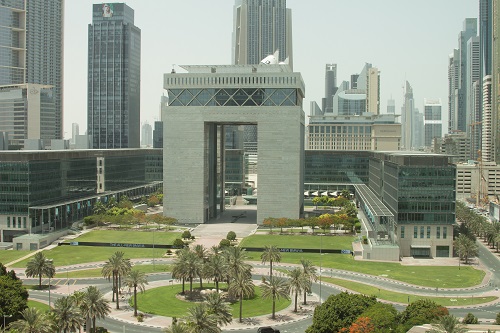Pravin Gordhan, who joined the anti-apartheid movement in the 1970s before rising to the top levels of South Africa’s democratically elected government, died on Friday morning after a short battle with cancer at the age of 75.
Until June, he had been a cabinet minister under President Cyril Ramaphosa with oversight of the country’s state-owned enterprises. He held several ministerial roles over the past 15 years, including two stints as finance minister.
Gordhan died in hospital in Johannesburg only months after retiring. A statement from his family said he told them in his final hours: “I have no regrets, no regrets . . . we have made our contribution.”
Ramaphosa said Gordhan was a “beacon of our fight against corruption”, adding that he “stood up to derision and threats emanating from some in our nation who were scorched by his insistence that justice be dispensed against those who sought to undermine our democracy and raid our public resources”.
Gordhan became the face of the opposition to “state capture”, confronting South Africa’s biggest post-apartheid corruption scandal in which friends of then-president Jacob Zuma were given access to power to profit from government contracts.
Gordhan’s fight against corruption prompted Zuma to remove him as finance minister twice, first in 2014 and again three years later, when Zuma accused him of being part of a plot to oust him. “I was surprised that he wanted me back [after the first time],” Gordhan told a commission of inquiry into the scandal years later. “I do not make deals with smugglers or tax evaders, I do not submit to bullying.”
The second time, in 2017, he was fired at midnight after Zuma recalled him from meeting investors in London. South Africa’s first fall into junk status since the 1990s followed days later.
Gordhan, who once backed Zuma, had indeed turned against the president for what he regarded as his role in trashing Gordhan’s beloved African National Congress by transforming it from an organisation to serve the people into one serving its own cadres. He was actively campaigning behind the scenes for Ramaphosa to succeed Zuma, something that eventually happened in 2018.
Gordhan was subsequently accused of corruption by those close to Zuma, though the charges turned out to be trumped up. Those who knew him, even those who disagreed with him politically, said his integrity was never in question.
“The slogan ‘The struggle was my life’ is so applicable to Pravin, because it was his entire life from the days of the liberation struggle in the 1970s,” said Derek Hanekom, a former cabinet minister and close friend. “He did none of it for personal gain.”
Born in 1949, Gordhan became a young activist in Durban associated with the Natal Indian Congress. Though he came from South Africa’s Indian community he rejected attempts by the apartheid government to divide and rule by giving Indians selective voting rights and threw in his lot firmly with the country’s Black African majority. Spurred on by a deep sense of social injustice, he subsequently joined both the ANC and the South African Communist party.
He graduated from the University of Durban-Westville with a pharmacy degree in 1973, but his tenure at Durban’s King Edward VIII Hospital ended in 1981, when he was fired for his anti-apartheid activism. He was arrested by police many times for defying segregation laws.
Kuben Naidoo, former central bank deputy governor, credits him with helping to invent the “door-to-door activism” that became an organising principle of the anti-apartheid struggle. Cadres would visit people in their homes to discuss politics and recruit new members.
“He started his activism at a very young age and his involvement with the ANC probably spanned at least 50 years,” said Naidoo.
After Nelson Mandela’s release from prison, Gordhan was part of the negotiating team that established a transitional agreement for a new democratic government, which saw the ANC take over in 1994.
In the post-apartheid era, arguably his biggest contribution was as head of its tax authority, the South African Revenue Service, which he professionalised after he took charge in 1999, helping it become one the country’s strongest public institutions.
His success at Sars allowed South Africa to finance many of its pro-poor plans, including a burgeoning social welfare programme on which more than 20mn people now depend.
The qualities that made Gordhan apparently indomitable could also make him irascible and imperious. He never lost his sense that the state should play a vital role in development and, though a pragmatic policymaker, he maintained a life-long suspicion of the private sector. Yet both at Sars and as finance minister, he ran prudent, professional organisations.
In his last role as state enterprises minister, some blamed him for the failure of Eskom, the state electricity provider, which imposed crippling power cuts on his watch. However, the power cuts stopped as his tenure came to an end, lending credence to his argument that he had helped put in place the measures to turn it around.
Following this year’s election, when the ANC lost its majority, Gordhan strongly backed a government of national unity, including with the market-oriented Democratic Alliance, rejecting an alliance with Zuma’s radical MK party or the Economic Freedom Fighters of Julius Malema who he believed would loot the country.
“He indicated that he would like to be remembered as just an activist who grew up in the streets of central Durban, who had the opportunity to contribute as a life-long activist to build a changing South Africa,” said Neeshan Bolton, executive director of the Ahmed Kathrada Foundation.
His family was said by friends to be devastated that he died so soon after retiring from his active ministerial life. “You can retire from a job,” he was quoted as saying in a 2021 biography about him, “but you cannot retire as an activist.”
Additional reporting by Joseph Cotterill
Credit: Source link














